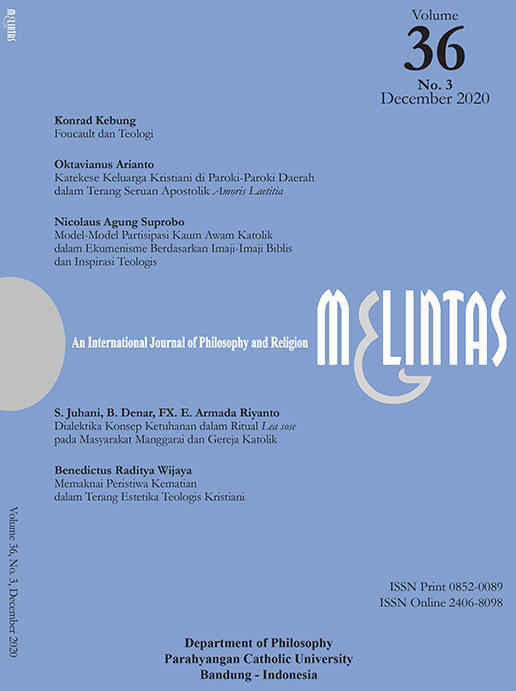Katekese Keluarga Kristiani di Paroki-Paroki Daerah dalam Terang Seruan Apostolik Amoris Laetitia
DOI:
https://doi.org/10.26593/mel.v36i3.5385Keywords:
Christian family, catechesis, Amoris Laetitia, contextual catechesis, moral values, local wisdoms, rural parishesAbstract
Christian families are called to participate in the missions of the Church. One of the missions is the proclamation of Christian faith and the propagation of moral values. Christian families’ participation in the proclamation process can be carried out through family catechesis. Family members can do family catechesis in the light of Pope Francis’s apostolic exhortation Amoris Laetitia. The apostolic exhortation speaks, among other things, about the joy of love in the family. In the family catechesis, each member of the family is the subject of catechesis. The proclamation of Christian faith and the propagation of moral values in the family can use simple and contextual catechetical methods, especially among the parishes in rural area. This article explores the roles of family members, the themes for catechesis, and the methods of family catechesis to be used in rural area in Indonesia. A contextual catechesis is a form of catechesis that takes into account the experiences of the faithful as a source of family catechesis in relation to the Scripture. Family catechesis can also draw on cultural components, especially the local wisdoms which do not contradict the teachings of the Church, as part of the method of proclamation of the Christian faith and of propagation of moral values.
Downloads
Published
Issue
Section
License
Copyright (c) 2020 Oktavianus Arianto

This work is licensed under a Creative Commons Attribution-NonCommercial 4.0 International License.
MELINTAS applies the Creative Commons Attribution (CC BY NC) license to articles and other works we publish. If you submit your paper for publication by MELINTAS, you agree to have the CC BY NC license applied to your work.


